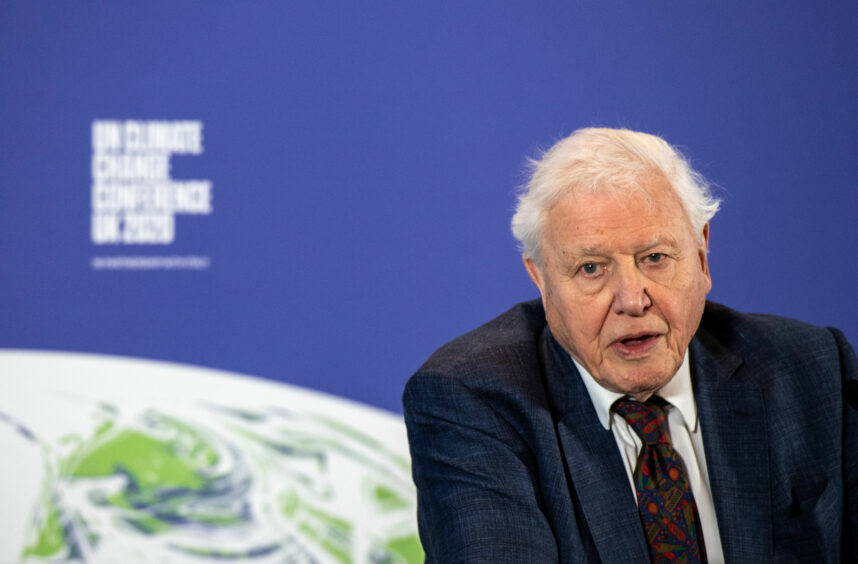
Politicians must give people confidence that the changes needed to slash climate emissions are “desirable and possible for us all”, Sir David Attenborough has urged.
The naturalist and broadcaster said greater public participation and fairness needed to be at the heart of all climate action, as Parliament marks one year since the conclusion of the first UK-wide citizens assembly on climate change.
Assembly members are coming to Westminster to mark the anniversary of their report on how politicians could meet the UK’s legal target to cut emissions to zero overall – known as net zero – by 2050.
Climate Assembly UK was commissioned by six parliamentary select committees and brought together 100 people who were representative of the UK population including in their views on climate change.
Over several weekends, and then online as work was disrupted by the pandemic, they met to learn about, discuss and make informed decisions on options for meeting the net-zero goal.
Their final report supported moves including frequent flyer taxes, a ban on sales of new gas boilers and new petrol, diesel and hybrid cars by 2030-2035, voluntary reductions in meat and dairy from diets, and planting and managing forests to soak up excess carbon emissions.
The group said the shift to net zero must be fair to people, and called for widespread education and information, government leadership, and cross-party consensus on the issue.
The Government is expected to set out its strategy for meeting the net-zero target ahead of crucial UN Cop26 climate talks the UK is hosting in Glasgow in November.
Sir David, who has been named people’s advocate for Cop26, said: “The world’s scientists have been very clear on what’s at stake for mankind if we don’t act on climate change.
“Our political leaders now need to lead and give people confidence that all the changes needed to deliver net zero are desirable and possible for all of us.
“Parliament’s Climate Assembly has done a truly remarkable job of highlighting the high levels of public support for climate action up and down this country and given government and MPs an invaluable roadmap of how it can be done.
“We owe the members of the UK public who took part in it a huge debt of gratitude.
“Above all, the Assembly has been abundantly clear that greater public participation and fairness is needed at the heart of all climate action and this is therefore a message I hope this Government has heard loud and clear and certainly one I plan to share with all world leaders at Cop26 in Glasgow.”
Sue Peachey, an assembly member from Bath, said: “After several months of us all listening to advocates and experts, we reached the conclusion that change is imperative and set out our practical recommendations to make that change happen in a way we hope most people would find acceptable and achievable.”
She said she hoped Boris Johnson would listen to people’s priorities and ideas and give the public a bigger role in delivering net zero.
“If he takes time to inform and work with people who have legitimate concerns, we have shown he should be pushing at an open door,” she said.
Darren Jones, who chairs Parliament’s Business Energy and Industrial Strategy (Beis) committee – one of six select committees that commissioned Climate Assembly UK – said the assembly had done Mr Johnson’s homework for him.
“But the Prime Minister and Chancellor have so far seemed too scared to be upfront with people about the small changes that we will all need to make in the near future,” he said.
“The Government must build on the climate assembly’s work and urgently bring the public into the debate about what tackling climate change really means, explaining not just why it’s necessary but how it’ll have a positive effect on people’s lives.”
Recommended for you
